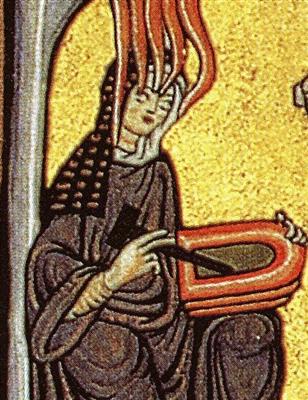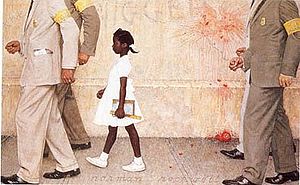Pytheas of Massalia.
The fall of the Qin dynasty.
Pytheas of Massalia.
The fall of the Qin dynasty.
Gutenberg (and his Korean printer antecedents), and Hildegard von Bingen.
The former because the impact of mass printing cannot ever be stressed enough IMHO, and the latter to remind people that there’s nothing new about progressive ideas.
There was that recent book about English women writers in the medieval period too:
Wow, the whole of human history up until the year 1500.
Big scope.
I have some thoughts:
1- How about having objects rather than people as the focus of individual lectures. This lets you discuss a range of issues that can be associated with the object, and leads into taking a look at the idea of history being about “great forces” rather than “great people” (Yes, I am completely stealing this idea from Tim Harford’s series “50 things that made the modern economy”). In that vein, here are some objects that could be used to anchor individual lectures:
Bronze spear point or arrowhead- To anchor a talk about the bronze age in the near east and china. How this accompanied the growth of early societies, the trade networks that spanned the world to get tin and copper to the places where they were used- a lead in to the bronze age collapse and the fragility of interconnected societies.
Lapis Lazuli ornament- can be used to talk about the rise of the silk road and the trade that flowed along it, how this can be traced by the spread of this stone which has very few sources, in modern day Afghanistan- this can also lead into art history and how the rarity of this stone, and the huge value of the ultramarine pigment produced from it influenced art down to the modern day.
Cuneiform tablet- you’ll have to have a session on the history and the spread of writing, how it was discovered, used and influenced history throughout the world, and evolved into the many scripts we use today.
Lapita pottery- this lets you cover the Polynesian expansion across the Pacific, how the distinct phases of expansion brought these cultures to every habitable island in the vast expanse of ocean.
The Nanjing rudder- to be used to talk about Ming china’s maritime expeditions, which naturally leads on to a discussion of imperial Chinese society, the reason for the abandonment of naval adventurism, and a contrast and prelude to the European age of exploration shortly after.
(side note- do you have a museum that your university is associated with? things could be subbed out with similar local exhibits that your students could actually go and see and research.)
If you’re choosing to stick with people, can I suggest-
You’re going to have to talk about the Egyptians at some point, so how about using the story of Akhenaten. Going into the reasons why there was a reaction against his rule gives you a perfect excuse to get into the details of Egyptian society, how he tried to change it, and why sets up a nice segue into attempts to rewrite or eliminate someone from history, unreliable narration and all that fun stuff.
If you’re going to spend some time on the Romans, then I’d suggest the brothers Gracchi as your key story there. They link intimately into the social set-up of the republic, the stresses within Roman society that led towards civil conflict, and the fall of a (flawed) republic leading to the rise of a dictatorial empire to the cheers of the population (Holy subtext, Batman!).
How about “from Cyrus to Khosrau” two characters to bookend the great Persian empires. The Persians usually get cast as the antagonists in European histories, so focusing on their civilization from their point of view would be a welcome change.
Since the split of pre and post 1500 leaves the start of the second course ready to dive straight into the European colonisation of the Americas, a suggestion for the final lecture would be Henry the Navigator. He’s a perfect jumping off point for discussing the roots of European colonialism, the driving factors that led up to that point, the strange side-tale of chasing the legend of Prester John, leaving you with a bunch of stuff where you can say “and you’ll just have to enrol in the other course to see how that plays out”
Yes, those sound like great ideas.
Messing with stone tools and fire would probably be too messy and time-consuming, but it’s worth emphasizing that people in the distant past were using finicky and demanding technologies.
Paper. Also clay tablets, wax tablets, parchment, and so on, and a sense of the cost of parchment.
Plows. And digging sticks, ards, etc.
All this lends itself to technological determinism and history-as-progress. Not sure what would balance that out.
Great book. Pick an antipope, maybe Clement VII, from the Papal Schism, residing in Avignon.
How about Catherine of Siena, who wielded political influence based solely on her mysticism?
Sultan Mehmed II, the fall of Constantinople in 1453 and the end of the Byzantine Empire.
The love child of Hildegard the Singer and Bing Crosby the Singer?
Nah but you should Google her. She’s a trip.
What is that…a tree?
On her wimple? The Pentatentacles?

SO GROSS…feh! (spits!)
I mean, I know his inherent sliminess is only a part of his evil…but MIGAWD, CANDY BERGEN, HOW COULD YOU HAVE?
I can’t imagine power overcoming my innate hatred of such an abhorrent so-called “human” to make me date it.
PS: Remember to include the impression of him in “The Pink Panther Strikes Again”:
I’m lazy, so I mayn’t have seen if you included this proof of the power of the illustrative press (imagine if Norman Rockwell had been an editorial cartoonist?).
In his later years especially, Rockwell basically was an editorial cartoonist, except he got the front cover:

Yes, Look hired him to do that. The “New Kids” is another one. We had a couple of his books - coffee-table type things - and were encouraged to look at and read them. And jigsaw puzzles. I have a print of his illustration of The Golden Rule in a nice mat on my dining room table.
See, we were raised to see him as an artist/illustrator. It was very important that we got that.
It seems an odd thing to give you a Coke for, but yes, I should have read the entire thread, and yes, I know the rules.
That is awesome. The jigsaw puzzles must have been amazing.
Reupping this guy:
Hero of Alexandria
Unfortunately, most of our history is focused around the “Great Individual” theory and approach, which is why we credit Abe Lincoln for ending slavery, when what he really did was sign a paper. There were a lot of people working hard to make it happen, but we don’t remember them. Darwin didn’t work in a vaccum and neither did Steve Jobs. Marconi wasn’t the only inventor of the radio. Edison had a lot of employees who he stole shamelessly from. Marx bounced ideas off lots of people (and probably used theirs without credit), but somehow we act like he single-handedly invented communism.
The best human endeavors and advancements are cooperative, not a single genius. Sometimes I wonder what kind of a society we’d have if we had never promoted that myth in the first place.
I don’t think we had his “April Fools” as a cover, but we did have it in one of the books and I was FASCINATED.
The one puzzle that I best remember was of the G.I. coming home to what looked like a Bronx tenement.
Here’s one that might be useful if you want an Oz representative:
Or alternately:
Good as an antidote to the “Indigenous Australians did not resist invasion” bullshit.
—
As for pre-1500 stuff…Khosrau?
Yep, I agree. I do try to include people who are less well known, but influential in these classes, and to point out how the individuals I’m talking about were part of a larger set of events, not the only ones who mattered…
Thanks for all the input, guys! I’ll hopefully have some time to sort through your suggestions and response this weekend.
Huh. I’m just reading this book:
about Jacob (or Jakob) Fugger, whose life and business dealings touched all the issues of that time period. .
Steinmetz makes the case for him being the first real capitalist. Most of his money and influence was acquired by loaning people money. He financed armies, bribed popes, paid for royal weddings, and bought the election of the Holy Roman Emperor. If not for him, as one example, the Habsburgs might never have become powerful.
@mindysan33, you may know all this already. I don’t know how academically rigorous the book is. The book is definitely pop history and the writing is workmanlike at best, but I found Fugger a fascinating character.
ETA: Fugger rhymes with “cougar”. Apparently. 